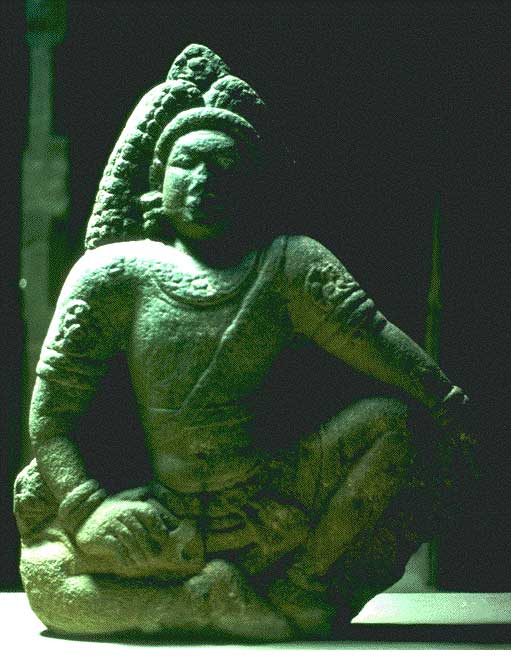Janism

Jainism was founded by Vardganaba Magavura. He believed that all living things had a soul. Jains who had become Magavura's followers believed that the only way to obtain eternal bliss was through asceticism and avoidance of all evil thoughts. Since every living creature possessed a soul, it was essential that one be a vegetarian. Non-violence became an essential characteristic of Jainism.
Jainism, one of the oldest religions in the world, was founded in the 6th century BCE in ancient India by Mahavira, often known as Vardhamana Mahavira. Born into the royal family of the Kshatriya caste, Mahavira renounced his wealth and status to seek spiritual truth. He became a monk and pursued asceticism for twelve years before attaining Kevala Jnana, or omniscience, and becoming the 24th Tirthankara or spiritual teacher in Jain tradition.
Mahavira believed that every living being possessed a jiva, or soul, which was eternal and divine. The soul's liberation, according to him, was hampered by karma, which was accumulated through violent thoughts and actions. Thus, the path to liberation or moksha involved strict adherence to non-violence or ahimsa, a principle that extended to all living creatures, including animals, insects, and even plants.
Adherents of Jainism, known as Jains, were taught to follow a strict vegetarian diet, abstaining not only from meat but also from certain plant foods believed to harm more than one life form, such as root vegetables. They believed that this way of life minimized harm to other living beings and reduced the accumulation of negative karma.
Ahimsa was one aspect of the broader ethical framework known as the Three Jewels, which also included right belief (samyak darshana) and right knowledge (samyak jnana). These principles guided Jain monks and laypersons in their quest for spiritual advancement.
Asceticism, too, was a critical element of Jain practice. Monks and nuns renounced worldly possessions and lived a life of extreme austerity, which often included fasting, meditation, and rigorous observance of the Five Great Vows: non-violence, truthfulness, non-stealing, celibacy, and non-attachment.
It is also important to note that Jainism is not a theistic religion; rather, it emphasizes self-effort in achieving spiritual liberation. The Tirthankaras are venerated not as gods, but as enlightened beings who have achieved liberation and serve as role models for other souls on the path to moksha.
Even today, Jainism remains a significant religion in India and has spread to various parts of the world, with its core principles of non-violence and respect for all life influencing many aspects of culture, philosophy, and environmental ethics. Its focus on individual responsibility, spiritual progress, and harmonious co-existence with all forms of life continues to resonate with many people seeking a path of spiritual enlightenment.
 >
>